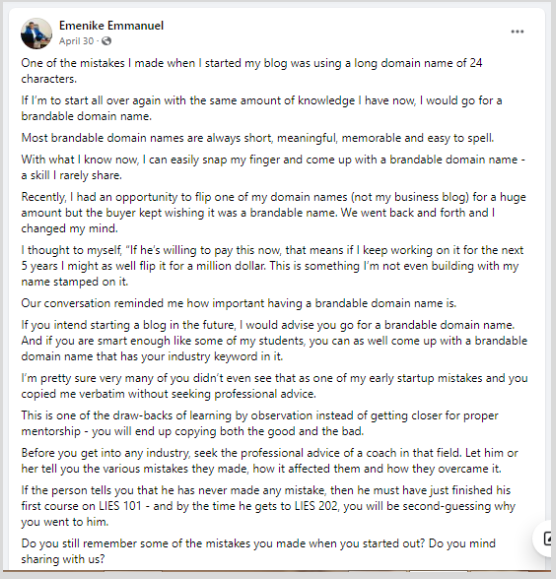Instead of finding out blogging mistakes from just a random blogger, you can learn from 5 of them.
I reached out to 5 bloggers (big and small) and asked all of them pretty much the same questions.
- Common Mistakes amateur bloggers make that cost them a lot and how to avoid them.
- Mistakes they also made during their early days of blogging that cost them a lot.
So you are going to learn from these successful bloggers’ mistakes and how to avoid them at all costs.
Even if you found yourself doing any of those mistakes then they revealed to me how it can be corrected.
Eleanor Roosevelt said it best.
“You can never live long enough to figure it all by yourself“.
The response I got from these bloggers is pretty much alarming and trust me, you can’t find them using Google.
And I can’t wait to share all these golden nuggets with you.
With that, a big shout out to those bloggers who contributed to the success of this post.
So without further ado, let’s dive right in.
Blogging Mistakes From Successful Bloggers I Asked
Ryan Robbinson:
Founder of Ryrob, a blog that covers in-depth tutorials on how to start and grow a successful blog with over 500k Monthly readers & Generates $30,000 dollars in monthly revenue.

Ryan has Been featured on Forbes, Hubspot, Entrepreneur, and Business Insider.
So I reached out to Ryan about those mistakes amateur bloggers make and his personal mistakes as well.
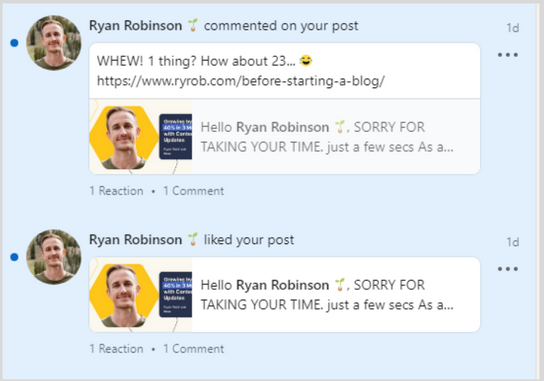
And the Good Part: He referred me to 23 of those mistakes.
So I Highlighted 4 out of those pain points that are likely to occur to a newbie or amateur blogger.
And they are.
Quality > Quantity:
Quality beats quantity in every niche aspect of blogging.

Better Misconception: Publish as much content as you can.
But the truth is the opposite, there is no guaranteed success for publishing content as much as you can.
According to earth web, there are over 7.5 million blogs published per day.
And for your blog to stand out from this huge list, it needs to be great and actionable.
So instead of focusing on quantity (publish more often), focus on Quality content (less often but amazing content).
Build BackLinks (Relationships With Other Bloggers):
If SEO is primarily your source of traffic, then you should know how huge backlinks are important in Google’s algorithm.
They are links from one website to another website.
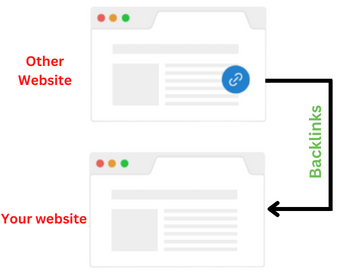
And that reminds me of this story.
Some time ago, I really wanted a backlink from a website with a Domain Rating of 36 to my blog.
I tried emailing the site owner to request a guest post, but unfortunately, they refused.
That’s when I realized I needed to change my approach and still try to get a link from them.
What did I do?
I decided to connect with the site owner on Facebook.
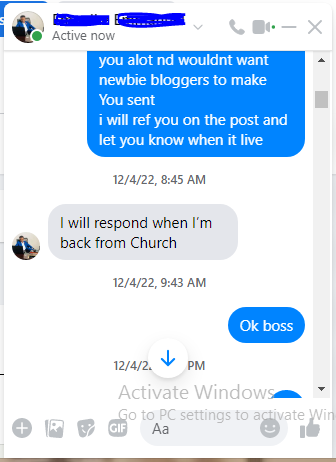
And also engaged with his posts and left helpful comments.
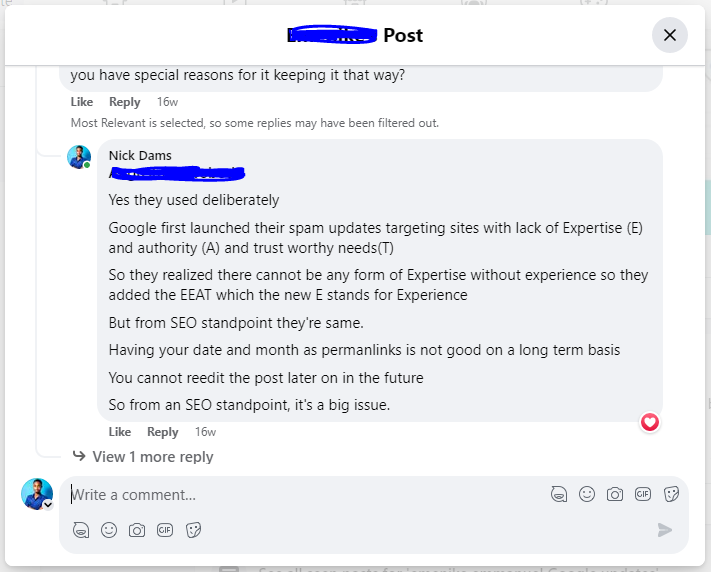
I featured the site owner as an expert in one of my roundup posts and let them know about it.
They appreciated it and shared it on their own timeline.
After building this relationship, I asked again for a guest post opportunity.
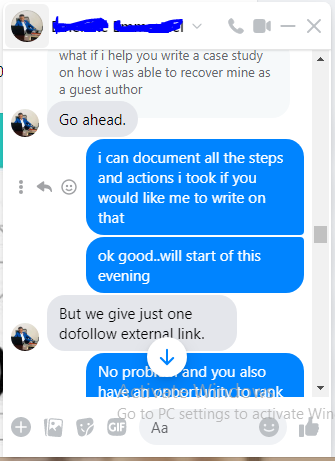
And this time, they accepted!
It shows that building a relationship first made all the difference.
Learn More: Check Out This Link Building Guide By Backlinko
Keyword Research Is Your RoadMap:

Are you doing keyword research for your blog? If not then please start right now.
People won’t find your content if you are writing content that you feel your readers would love to read.
Instead, write content your audience is already looking for a solution to.
And where are the best places to find them? Google.
This was the mistake I made earlier when starting out on my blog.
In the past, I made the mistake of creating blog content ideas based solely on what I thought my readers would like, without considering what they were actually searching for.
This resulted in wasted much time and effort.
Not until I learned how to do keyword research the right way.
So I deleted all my articles and rewrote them all from scratch based on what my readers are looking for.
And that led to an increase in traffic for a blog that was 6 months old.
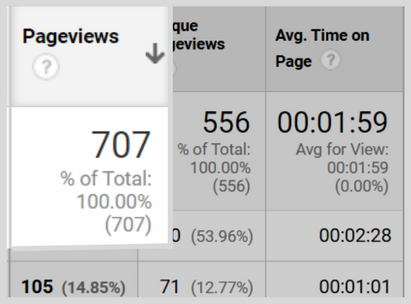
When they search for any keywords in my niche, my blog appears in Google search results and I earn the traffic.
Pro Tips
- Generate a potential list of seed keywords your audience is going to search on Google for in your niche.
- Use seed keywords tools to see if people are typing that exact phrase in Google
- Use any SEO tools to check the keyword difficulty, the lower the competition, the better you can easily rank.
Learn more: Check Out Backlinko Keyword Research Hub
Don’t Be In Haste (It Takes 6-12 Months To Make Your First $$ Blogging):
Every blogger’s main goal is to generate income, but the actual process is not as quick as it may appear.
In reality, according to Ryan’s suggestion, it takes an average of 6-12 months before bloggers can earn their first dollar from their efforts.
My personal experience of blogging for 2 years confirms this, and it’s evident that blogging is far from being a get-rich-quick scheme.
Learn More From Ryan Robbinson: A List of the 23 Mistakes he made During his Early Days of Blogging.
Rob W:
An internet marketer since 2012 who found success growing niche sites.
Rob W has grown his blog to a traffic number of over 10k pageviews every month. impressive!
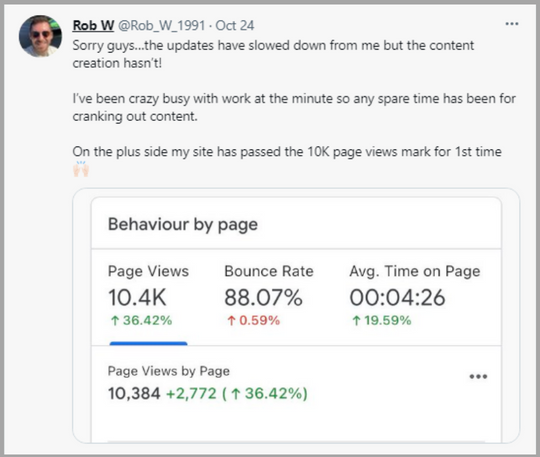
With that, Rob also has some interesting mistakes amateur bloggers are victims of, and also he as well during the early days of growing his site.
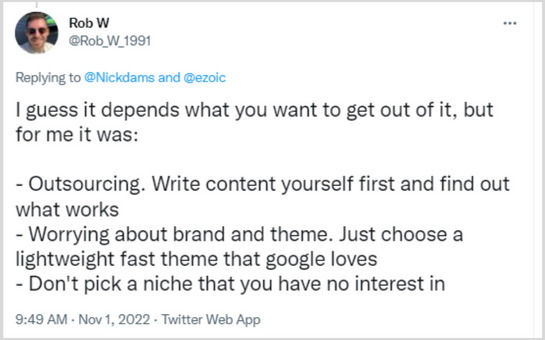
Find What Works Before Outsourcing:
When you understand what works for your system, outsourcing becomes easier to do.
Many bloggers create a blog in a niche they have no prior knowledge about and mistakenly believe that outsourcing everything will lead to success.
However, the truth is, how can one determine if they are on the right track when they lack understanding in that niche?
Outsourcing for an untested or unproven system can be a wasteful allocation of resources.
As PR marketer Mikaela Robertson aptly stated, it’s crucial to be cautious and mindful of where you invest your budget.

Moving on.
Worried About Blog Design & Themes:
In the early days of blogging, I got caught up in designing my site rather than focusing on content.
It hurt my productivity.
While good design is essential, building an audience should be the priority at first.
Use a lightweight WordPress theme, publish content, and improve design later as your blog grows.
Content creation matters most.
Picking A Niche With No Interest:

If you have no interest in a particular niche then you don’t deserve to go into it, PERIOD.
Emenike Emmanuel:

Meet Emmanuel, a digital marketing consultant and also the founder of Enterpreneurbuinessblog.
He won “2019 Blogger of the Year” at the Global Excellence in Marketing Awards In the US.
He was also listed on Statusbrew as one of those 100 social media influencers to follow in the year 2018/2019.
And that also tells us that there is a lot we can learn from Emmanuel, and I reached out to him based on mistakes he made and amateur bloggers as well.
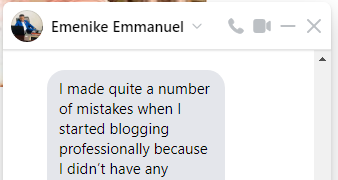
And the Good Part: he mentioned 2 of them and you would love to hear them out.
Choosing A Long Domain Name:
Initially, I never thought such mistakes could occur, but once they do, there’s no turning back.
Emenike shared one of his biggest regrets – choosing the domain name “entrepreneurbusinessblog,” which is 24 characters long. While it’s easy to pronounce, typing errors can lead to branding issues and a significant downfall.
He quotes:
“One of the mistakes he made when starting his blog was using a long domain name of 24 characters”.
“If he were to start all over again with the same amount of knowledge he have now, a brandable domain name would have been the best option”.“Most brandable domain names are always short, meaningful, memorable, and easy to spell”.Recently, he had an opportunity to flip one of his domain names for a huge amount but the buyer kept wishing it was a brandable name.We went back and forth and I changed my mind.I thought to myself, “If he’s willing to pay this now, that means if I keep working on it for the next 5 years I might as well flip it for a million dollars.
Choosing The Wrong Permalink Structure:
A Permalink serves as a hyperlink that provides readers with an overview of the article’s content.
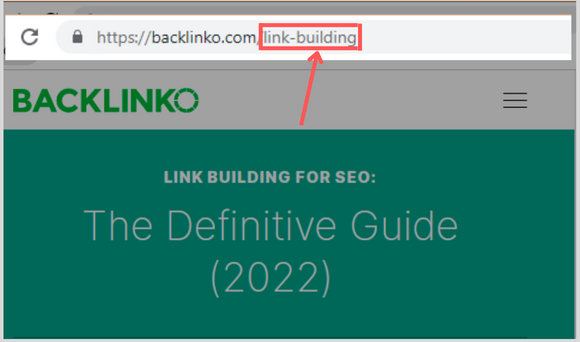
While they are typically meant to remain unchanged for a long time, they can still be modified when necessary.
From an SEO perspective, permalinks assist Google in understanding the structure of your content’s URL.
However, some amateur bloggers find permalinks less valuable, and it can cost them significantly.
For instance, using dates in permalinks can be detrimental for blogs that require evergreen articles.
Emenike experienced this problem firsthand.
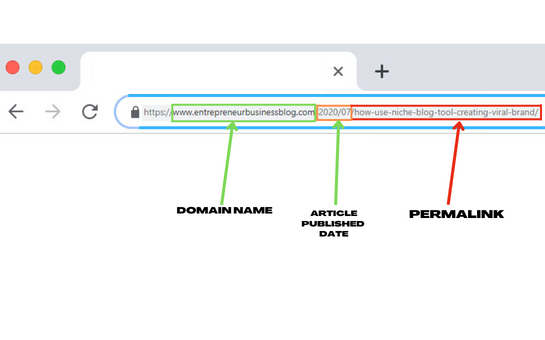
The issue arises when you update an article in the future, but the dates in the permalinks remain unchanged, giving the impression that the content is old despite the updates.
Additionally, on social media platforms that display only the first 25 characters of the links, if those characters are occupied by dates, it may make the content seem irrelevant when shared.
Learn More: Neil Patel Guide To Permalinks Structure & Optimization.
Prosper Noah:
An SEO Blogger with a blog that generates 10k Monthly and makes 100% of his revenue through affiliate marketing.
Prosper also has some interesting things to share and it begins with these common amateur bloggers’ mistakes.
- Using free Blogspot blog
- Not Doing Keyword Research
Using Free Blogspot Blog:
If you’re serious about making money with blogging, you shouldn’t be blogging on a free platform Like Blogspot or Medium.
A Blogspot blog limits you to a lot of monetization features that could take your income to the next level.
So if you are blogging on a free Blogspot blog, then it is in your best interest to move to wordpress as it offers room for multiple income streams.
But if you have no money for hosting and domain then blogging on Blogspot is still not the best option due to the following reasons.
- Limited Monetization features
- Your contents can be deleted anytime without your consent.
- Complex coding experience.
So if you have no money to get started with hosting and domain then you should consider blogging on sites like Medium, Linkedin, etc.
But there are still some downsides to it, and that leads us to the next mistakes.
Blogging Under Someone Else Establishment:
Platforms like Medium, Blogging on LinkedIn, Tumblr, and others offer the advantage of free blogging, which is beneficial if you have a limited budget for starting a blog on platforms like WordPress.
However, it’s essential to be aware that using these third-party platforms means you don’t have full control over your blog.
They have the authority to remove your content, which can be distressing, as was the case with Medium when they flagged the author’s account a few years ago.

Losing all articles and control over your content can be a painful experience.
To avoid such a situation, it is recommended to explore alternative options, such as the author’s suggestions on the cheapest way to start a blog.
This way, you can maintain more control over your content and avoid potential issues with third-party platforms.
Pro Tips
- Open a self-hosted blog
- Publish content on your self-hosted blog and republish it on other blogging platforms like Medium, LinkedIn, or any microblogging sites, etc
Adarsh-P:
A Website Manager at Peer Through Media and also found success growing affiliate websites within short timeframes.
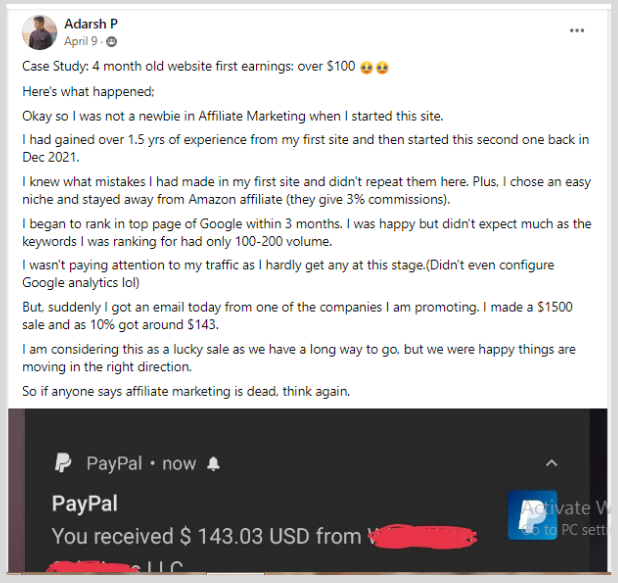
And he has some advice as well.
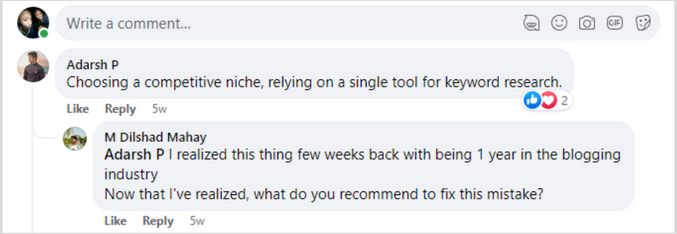
Choosing A Competitive Niche:
Blogging in a competitive niche can be harder than ever and sometimes not a good idea.
The word “sometimes” can only be applicable in a scenario where you are well experienced and doing things your competitors aren’t doing as that allows you to grow your blog faster.
But most of the time, it is a bad piece of advice.
You hear bloggers say choose a niche with high search demand and thus, not all high search demand niches are worth going for, why?
Because they are thousands of Higher authority sites dominating that space making it harder for you to grow.
Despite that, there are still some micro niches you can start dominating as you expand your way higher, and it all depends on your research.
Learn More: How To Choose A Micro Niche & Start Growing Your Blog Fast
Adam P also suggests.

Relying On A Single Keyword Research Tools:
If there is anything most bloggers wouldn’t like to listen to is simply relying on a single keyword research tool to make decisions for you.
Tools like Semrush, Ahrefs, and Ubbersugest, or any Search engine optimization tools are helpful especially when trying to get some important Metrics you couldn’t just find by searching Google.
But that is not just the only way to approach things.
These tools analyses are judged based on certain metrics and correlations based on their mode of operation.
I won’t condemn the fact that you shouldn’t rely on a single keyword research tool but one thing I know for sure is, all SEO keyword research tools aren’t accurate.
So relying on a single keyword research tool wouldn’t hurt that much but when it comes to making SEO decisions based on what this tool offers, the best answer to these problems is checking the SERP (search engine result page).
So if Tools A gives you a keyword difficulty score of 50%
And Tool B says it is 30%, then which is correct?
I don’t condemn both tools but the best solution to these scenarios is to see Google SERPs ranking for that keywords and ask yourself these questions.
- Those ranking for that term, is the article relevant to that topic?
- Do they cover the article in depth?
If not, then your decision should be based on writing a well-relevant detailed article and ranking for that term.
Google prefers solutions to answers and not the other way around.
Other Amateur Blogger’s Mistakes
So here are some common mistakes from other random bloggers as well.
Desperate For Google Ads Approval:
I have always been a victim of this approach because I already planned during the early days of my blogging career.
What was the plan? to monetize my blog as soon as possible and make money fast.
Not bad, but this approach was quite different than that of a successful blogger.
I was so desperate to monetize my blog with Google AdSense as soon as I had 10 blog posts published on it, even before I bought my domain and hosting.
Not just me, but others too.

And I won’t blame them.
This usually happens when bloggers show screenshots of how much they earn from displaying ads on their site.
Instead of trying to motivate others to work hard and let them know how far it takes, they only brag about it.
So this triggers mostly amateur bloggers’ mindsets negatively and builds their thirst to get monetized fast which in reality, doesn’t work that way as it takes time and effort.
And I could tell you for a fact that it was the greatest mistake I ever made.
This mindset killed my perspective towards blogging because my primary aim was to be approved by Adsense without knowing traffic comes first before monetization.
Why? I ignored building an audience and traffic first before thinking of monetization.
Look at how much my blog makes with 500 visitors from Google.
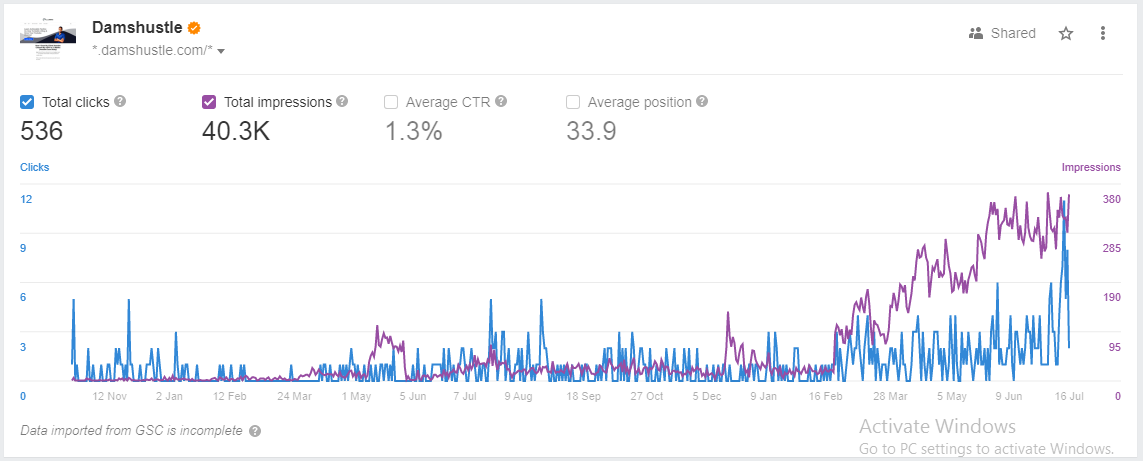
Not up to a penny.
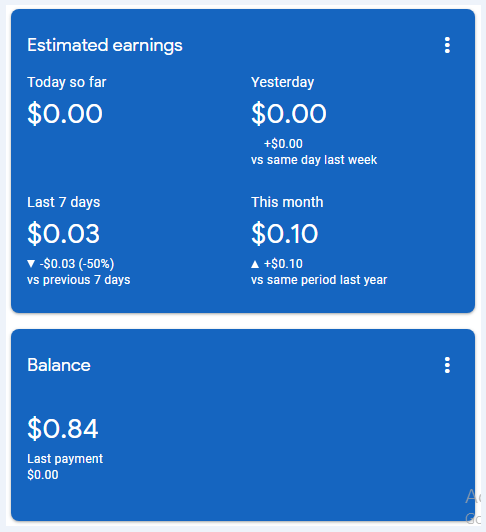
In other words.
Traffic + Audiences = Monetization.
So stop worrying about getting ads approved on your blog rather than building an audience first.
If you have a Traffic + Audience, then Monetization becomes an easy task to do.
Pro Tips: Make sure you start having traffic first before displaying ads on your sites.
Ignoring Semantic Keywords:
Back in the day, Google would rank your content if you added keywords in almost every portion of your articles.
That way Google can rank you for that keywords.
Now thanks to the Hummingbird algorithm, Google now sees this approach and terms it keyword stuffing.
And once done, you get penalized.
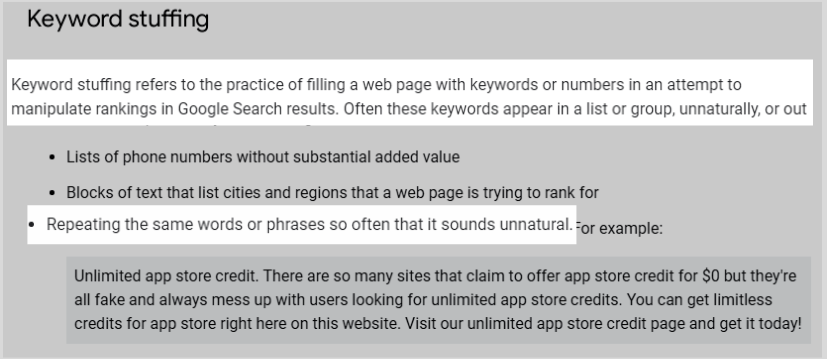
So here is what to do instead
Use keyword-related terms a.k.a Semantic or Lsi keywords (more on that later).
For example,
If you are writing an article about Blogging tutorials.
Then Google is expected to see related phrases like “hosting“, “domain“, “blogs“, “Keyword research“, “blogger,” etc.
Pro Tips
Put the keywords you want to rank for inside LSI keyword tools, and it generates a list of semantic phrases you can fit into your article.
You might also want to check out these posts on how these SEO tools helped me structure my content and ranked my article on Google’s first page.
Learn More: How Google Hummingbirds Works
Copying what is out there on the internet:
This is the most common mistake amateur bloggers make which is paraphrasing people’s content and republishing on their blogs.
I won’t stress this enough but if you are copying others’ content that is already published out there, then you are simply not providing value.
Don’t copy other people’s work, I am against it and so is Google.
You can only copy how they structure their contents but not their work.
If you find yourself paraphrasing content from other people about a topic, Google won’t see you as an expert on that topic.
Instead, look at what your competitors are missing and create a better version of it.
Learn More: How To Create a Better Version Of Your Competition Using The Skyscraper Techniques.
Ignoring List Building at Early Stages:
Do you know one of the most common mistakes bloggers make is ignoring building their email lists at an early stage of their blogging career?
Don’t get me wrong, You may still have it in mind to build your email lists but not starting sooner is very risky.
Backlinko founder, Brian Dean who has over 1M pageviews said one of his biggest mistakes was not growing his email list sooner.
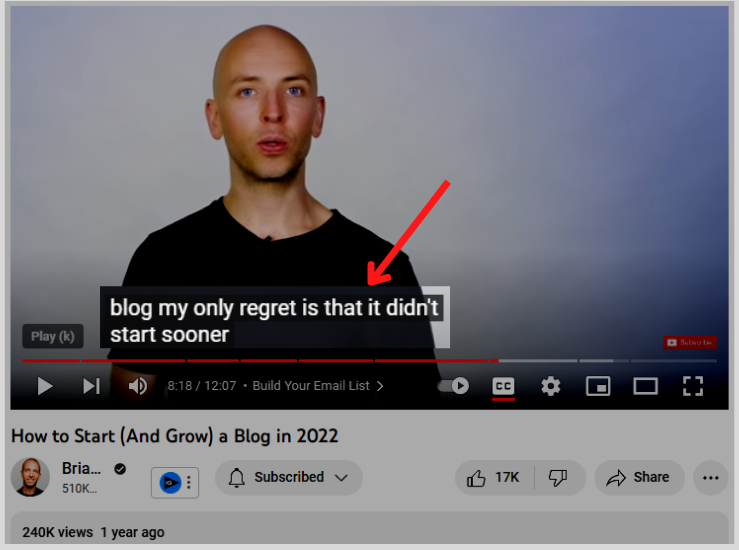
And I can explain its importance.
A while back Google recently rolled out an algorithm update that wiped a lot of people’s sites from search.
I mean quite a lot, and that means site owners lost almost 80% of their rankings.
Most site owners were even in tears because they also lost part of their revenue as well.
And causes a Huge Pain.
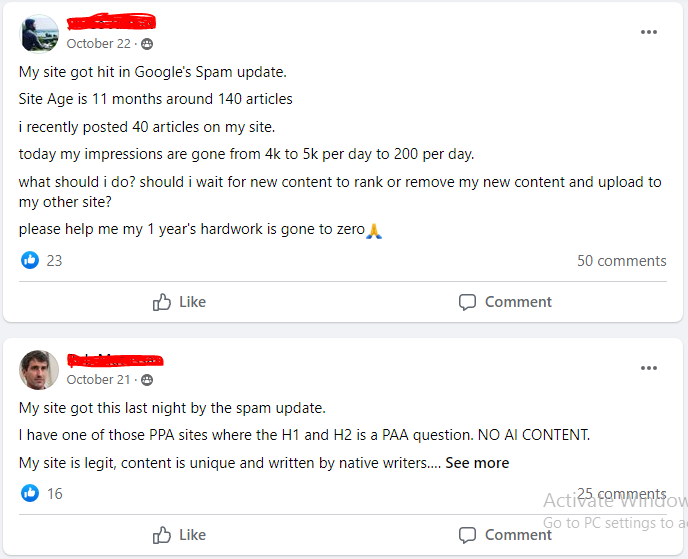
So if you have built your list earlier, you still have control over your readers because you have their emails on your email CRM and follow-ups continue.
Even though you lost rankings you still have an army of people on your lists you can still reach out to.
So at any point, you start getting traffic to your sites, build your lists immediately.
Learning All by Yourself:
You can not live to figure it all by yourself.
At any point in your blogging career, you definitely need advice from someone who has been there before and succeeded.
That is why a lot of amateur bloggers don’t seem to understand.
Even if you watch a series of free Youtube videos on how to start a blog from different experts.
Putting all those pieces and tactics together can cause you a lot of time and effort wasted.
Giving up way too soon (sandbox phase):
Blogging isn’t a do-or-die affair as It takes time.
If you are blogging in a niche where there are a lot of other giant sites in that space.
Then getting massive traffic will definitely take you time, if probably months before you can start seeing results.
This is absolutely normal because it takes a couple of months before your blog exceeds the Google sandbox phase.
In case you don’t know what that is:
The Google sandbox phase is an isolation period where Google watch out for some signals before they can start ranking you on search.
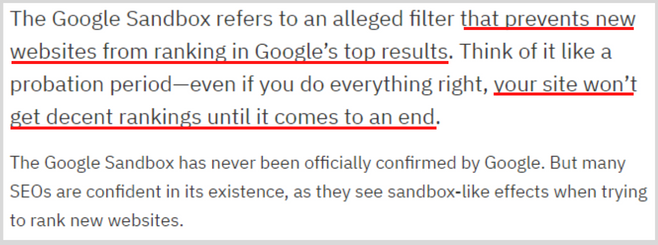
If your site is new there is no way you can avoid this period.
At that point, it will look like all your efforts are going in vain and you ain’t seeing results.
As long as all other SEO measures are correctly put in place, it could just be Google Sandbox doing its work.
Most bloggers tend to Give up and consider blogging as a dead scheme.
In other words, Don’t Give up & keep building EAT aka authority so you can quickly get out of this phase.
Learn More: A Research Study By Ahrefs On How long does it Take to Rank On Google First Page
Complete Guide To E.A.T In Google Algorithm
What Did You Learn From Today’s Post?
Now I have come to the end of today’s post.
And would love to hear from you, what mistakes do you find yourself doing that is actually causing a delay to your blog success or,
Did you just realize mistakes from a particular blogger, then let me know in the comments.

